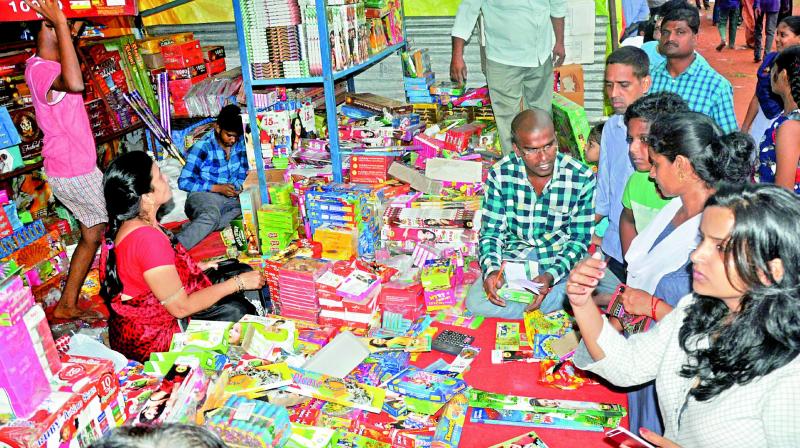Don't venture out early morning after Diwali: Pollution Control Board
PCB officials say morning fog may contain heavy particles.

Hyderabad: The Supreme Court has allowed bursting of “safe and green” firecrackers from 8 pm to 10 pm during Diwali as air quality in terms of particulate matter is already reading 55ug/m3, which is closer to the permissible limit of 60ug/m3.
Green firecrackers are the ones which are smokeless and noiseless. The Pollution Control Board (PCB), in its monitoring data that is evaluated every hour states, that the air quality is good presently and the various parameters of ozone, nitrogen dioxide, carbon dioxide and other metals are well within the limits.
The monitoring units located at Sanathnagar and Zoo Park carry out an hourly update. The vehicular pollution during peak hours in the city is becoming a concern in the evening.
A senior official on condition of anonymity explained, “On the outskirts we have fog during the morning hours. The heavy particles are going to be in the air and not get lifted away. Those who are staying close to the highways or heavy traffic zones must not venture out early in the mornings in city areas as there are chances of fine particulate matter, dust and droplets mixing up. The situation presently is under control but will build up in the next few days.” The levels of ground ozone O3 is 64.9 P ug/m3 on October 23 while the permissible limit is till 180 ug/m3.
With the hours for firecrackers being fixed, sources in PCB stated that they had only monitoring authority and would only evaluate the air quality a day before and a day after.
Another official on condition of anonymity said, “The air quality will be studied closely for the next few days. We are also looking into the smog factor where fine particles of vehicular pollution are mixing with dust and droplets and creating breathing difficulties. Hence the winter months will have these routine checks from time to time.”
Presently, there is no alert system in place like the weather department. Hence there is a blanket alert of not venturing out during early morning hours.
The air particles take at least two to three days to disperse in the atmosphere after the Diwali festival, the PCB officials explained.

